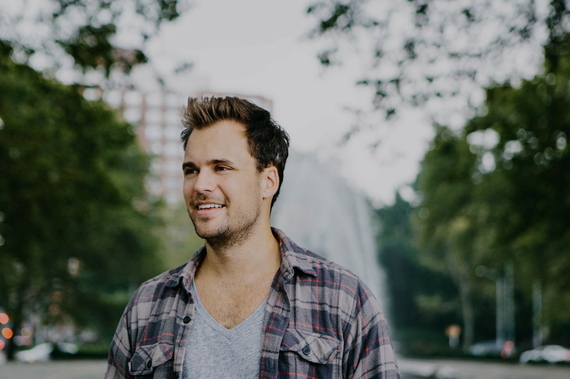Eddie Redmayne and Elle Fanning Set For Trans Roles: When Will Hollywood Learn?
 The casting of cisgender actors in transgender roles in two upcoming films have us scratching our heads and wondering if Hollywood will ever learn its lesson about letting trans actors portray themselves on the big screen.
The casting of cisgender actors in transgender roles in two upcoming films have us scratching our heads and wondering if Hollywood will ever learn its lesson about letting trans actors portray themselves on the big screen.
E! Online reports that Les Misérables heartthrob Eddie Redmayne is set to play Danish painter Lili Elbe (who, in 1931, was the first trans woman to have sex reassignment surgery) in The Danish Girl. Redmayne says he has been busy researching the part, meeting with many trans women and hearing their stories. “I have put on dresses and wigs and makeup. I’m beginning to embark on that and trying to find out who she is.”
In addition, Elle Fanning is scheduled to play a trans boy in the indie drama Three Generations, which will also star Naomi Watts and Susan Sarandon. According to The Hollywood Reporter, the film tells the story of Ray, a New York City teen who transitions from female to male, and his single mother, who struggles to come to terms with raising her only daughter as a son.
The casting of Fanning, 16, has already received criticism from transgender rights advocates who believe performers from their community should be getting a fair shot at these parts. But despite the success of Orange Is the New Black‘s Laverne Cox, it seems Hollywood still has a lot of work to do regarding trans visibility. With more and more films and television shows depicting characters who are transgender, one would expect there to be an equal rise in opportunities for trans performers. But for the most part, this does not seem to be the case. With the notable exception of Orange‘s Sophia, most trans roles still go to cis actors.
Scroll down for a look at some noteworthy portrayals of transgender people onscreen, some lauded, some blasted.

John Lithgow, The World According to Garp (1982)
The actor told The Huffington Post that to play the part of former football player Roberta Muldoon, he “just decided to underplay everything [and] make her a perfectly normal person — in fact, a person who is utterly unaffected.” Lithgow, who earned an Academy Award nomination for his work, called the character’s self-actualization “revolutionary.”

Rebecca Romijn, Ugly Betty (2007-2008)
Having based her character in part on some of her transgender friends, Romijn took a delicate approach when creating the role of conniving Alexis Meade. “I would never, ever, ever want to insult or offend,” the actress told Marie Claire. “The role is going to open itself up to people’s jokes — I mean, that’s just the way it is. But I want to make everybody aware that I am not the unofficial spokesperson for the transgender community.”

Ted Levine, The Silence of the Lambs (1991)
Much criticism was hurled at the Oscar-winning film for its perceived demonizing of trans people. Not only was the character of Buffalo Bill a serial killer, which was perceived as a direct response to mainstream society’s transphobia, many felt it portrayed trans people as perverts, which then embedded the notion into the minds of moviegoers worldwide. The film’s director, Jonathan Demme, later acknowledged his “directorial failing” in the handling of the character.

Hilary Swank, Boys Don’t Cry (1999)
While Swank’s portrayal of trans man Brandon Teena earned the actress an Academy Award, she angered Teena’s real-life family by referring to her character as “he” during her acceptance speech. Trans activists, however, applauded the actress’s use of the pronoun.

Cathy Moriarty, Soapdish (1991)
Scheming opportunist Montana Morehead, a buxom blonde who plays on her considerable assets to advance her career as a soap star, is revealed to be a transgender woman during a live broadcast. However, the scene’s punchline (Garry Marshall gasping “She’s a boy!”) elicited plenty of groans from transgender moviegoers.

Jared Leto, Dallas Buyers Club (2013)
Despite critical praise for his performance as Rayon, a trans woman battling drug addiction and AIDS, Leto was heckled at a film festival by a trans woman who called out his accolades as “trans-misogyny.” Leto countered that by insisting only trans performers play trans characters, “you’ve made sure people that are gay, people that aren’t straight, people like the Rayons of the world would never have the opportunity to turn the tables and explore parts of that art.”

Felicity Huffman, Transamerica (2005)
Huffman received acclaim for her portrayal of Bree, a transgender woman who embarks on a journey with a son she didn’t know she had. But many viewers balked, calling the film cissexist and decrying its reinforcement of stereotypes.

Glenn Close, Albert Nobbs (2011)
While not transgender in the traditional sense, Glenn Close’s portrayal of a woman who lives as a man in order to find work in 19th century Dublin opened a dialogue about gender identity and a person’s right to self-identification, which led all the way to the red carpet. The film was nominated for three Academy Awards and a GLAAD Media Award, among many others.
Winston Gieseke
feedproxy.google.com/~r/queerty2/~3/5ZJK1aXuK6k/eddie-redmayne-and-elle-fanning-set-for-trans-roles-when-will-hollywood-learn-20141104
Variety reports that American Idol alumnus and openly gay congressional contestant Clay Aiken has lost his bid for North Carolina’s 2nd district:












